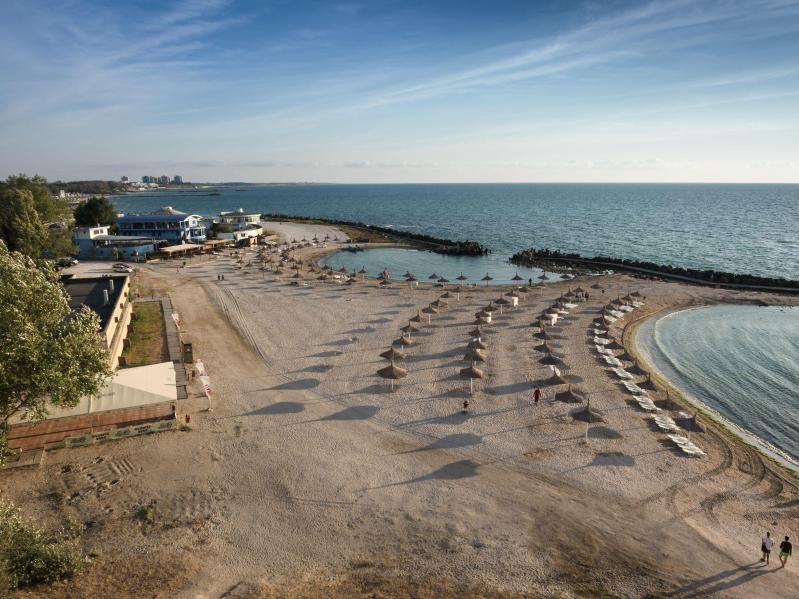
- Over 30 km of coastline protected against erosion and floods
- Around 383 000 inhabitants will benefit from the project
- 17 200 hectares of wetlands to be preserved
During the UN Ocean Conference, the European Investment Bank announced €97 million co-financing to support the resilience of Romanian Black Sea coast to erosion and floods. This new investment is allocated under the Structural Programme Loan ‘Romania EU Co-financing for Environment for the programming period 2014-20’.
The Romanian Black Sea coast is subject to erosion due to its orientation, geomorphology, the presence of artificial structures, as well as its local hydrodynamic conditions. This is leading to loss of land, properties and protected natural systems.
The project co-financed by the EIB alongside the European Union, includes investments for the construction and rehabilitation of coastal structures to protect over 30 kilometres of coastline and 17 200 hectares of wetlands, such as groynes, breakwaters, revetments, coastal facilities and cliff protection measures. EIB loan will also contribute to the construction of artificial reefs and other biostructures for marine habitats and beach protection. Finally, it will support the implementation of an integrated coastal monitoring programme to support beach maintenance and biodiversity protection. Around 383 000 inhabitants living within the coastal protected areas are expected to benefit from the project.
Ricardo Mourinho Félix, Vice-President of the EIB overseeing the blue economy, said: “Coastal erosion is putting lives at risk and creating socio-economic damages. We must do all we can to protect seacoasts and preserve the natural habitats they provide. This is part of the EIB Blue Sustainable Ocean Strategy by which we intend to improve the health of the oceans, build stronger coastal environments and boost blue sustainable economic activity with €2.5 billion of lending by 2023.”
Christian Kettel Thomsen, Vice-President of the EIB overseeing activities in Romania, added: “Protecting the Black Sea coast is essential for Romania, its economy, its population and coastal wildlife. The project will help preserve the quality of beaches that attract over 1.3 million visitors every year. Coastal erosion faced by the country is exacerbated by climate change. I am very pleased to work hand in hand with the government of Romania and the European Union to tackle this issue and intensify EIB’s long-standing collaboration with Romania to increase climate resilience of the Black Sea coast”.
The Romanian Black Sea coast is characterised by the Danube delta and sandy shores on the north and cliffs and sand and gravel beaches on the south, as well as lakes, lagoons and barrier beaches. Natural sources of sediment coming once from the Danube, have progressively been deteriorated by hydraulic works for dam and port works along the Danube. Extreme weather conditions, caused by wind waves, and extreme storm conditions coupled with high sea water levels, which are accentuated by climate change are increasing erosion. This is posing significant environmental risk to the nine NATURA 2000 sites located along the Romanian Black Sea coast affected by erosion.
The project is in line with the EU environmental protection law, the Integrated Coastal Management Plan, the EU Floods Directive, the Water Framework Directive, the Bathing Directive and the Marine Strategy Directive.
About the EIB
As the EU’s climate bank, the EIB committed to support EUR 1 trillion of climate action and environmental sustainability investments in the next decade. Under its Blue Sustainable Ocean Strategy, the EIB supports investments that will contribute to improve the health of the oceans and their resources.
More information about EIB’s activities to preserve the oceans.
More information about EIB’s activities in Romania